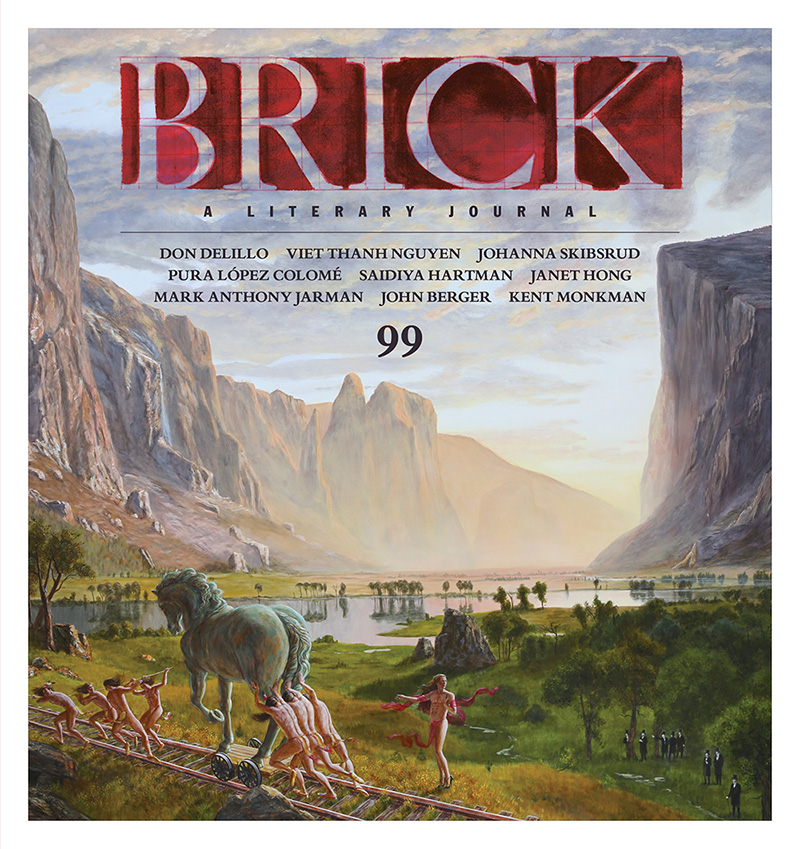Breath
Don’t be afraid.
A haenyeo can’t be afraid of the waves.
There may be thunder and lightning. There may be poisonous jellyfish, sharks swimming circles above you. There may be eels. There may be spirits that watch your every move, abandoned clothes that chase you away.
Own the breath you were given—it determines how deep and far and long you go. Respect the limits of your lungs: nothing more, nothing less. This isn’t something you can change.
You must master your eyes, for they are greed. And never swallow water-breath. It is the breath we cannot swallow, the breath we must let go.
There will be headaches and back problems. There will be voices that beckon you to where the waters are always warm, where the sea urchins and conch abound. There will be abalone, as big as your hand, that you’ll only see as you come up for air.
Whatever you do, don’t stop. Thirty seconds can mean life or death. But this I promise you: the sky as you emerge from the water—you’ll never see a sight more beautiful. That is the reason we all dive, for that piece of sky.
Gather only as much as your breath allows. Take what you can carry with your two hands. Pray for safety. Leave the shallow waters for our mothers; one day, when you’re old and wrinkled, you will be the one needing them.
This is what I know: If desire masters you, the sea will become your grave. But if you master desire, the sea will bring you life. Choose life.
Guardian
You are the price of our blood, our milk, our marrow, our sweat, our tears.
For you, we would go hungry, jump from a speeding boat, hang seventy feet below in water colder than Siberia, push our breaths to the breaking point—two minutes, five, or even ten. We would wrestle sharks and octopuses and violent winds, travel to the underworld and back. A thousand times over we would offer ourselves, and if we weren’t enough, our grandmothers and mothers and sisters and daughters too. Anything for you, our darling pearl, our bright, precarious seed.
Our future is uncertain. There is talk of decline and extinction, the end of all we know. Our men have left, and our children too. And the sea—our playground, our field, our home!—is turning white. There is no seaweed. There is no conch, no abalone. Just plastic bottles, Styrofoam, and cigarette butts, drifting like memories. Like ghosts. Still, we force ourselves to dive. When we rise to the surface, we are old.
Do not be fooled by these brittle shells. Do not be fooled by our bad backs and bad hips and bad joints. Do not doubt the strength of these bones, calcified by centuries of toil and suffering.
The truth is, apart from this, we have nothing. We have spent it all, with trepidation, with devotion, with grief, with love. Our ancestress’s tears have become the sea; her presence lingers. For there she hangs, weightless, deep in the water, in her thin cotton suit, a fish stopped in midswim as though frozen, a woman made into a mermaid, a siren, waiting to be found.
You drift quietly inside our waters as the world clashes outside. All we can do is hope the sea will be here when you finally wake, that this mother, this husband, this lover, this god will be here still, with its arms open wide for you.
Credits:
“Sea Mothers” is a part of a collaborative project with photographer Zena Holloway, which will be exhibited in South Korea later this year. “Breath” is modelled after Lorna Crozier’s “Packing for the Future: Instructions.” “Guardian” borrows from Gabriela Mistral in “Clearcut: America,” from Selected Poems of Gabriela Mistral, translated by Ursula K. Le Guin: “Make my blood, my milk, / and my marrow and my tears”; and from Margaret Atwood’s A Handmaid’s Tale: “Behind me I feel her presence, my ancestress, my double, turning in midair under the chandelier, in her costume of stars and feathers, a bird stopped in flight, a woman made into an angel, waiting to be found.”
Janet Hong’s fiction and translations have appeared in Words without Borders, Asia Literary Review, the Malahat Review, Kyoto Journal, and the Korea Times. Her translation of the novel The Impossible Fairy Tale by the Korean writer Han Yujoo was published by Graywolf Press in March 2017.
